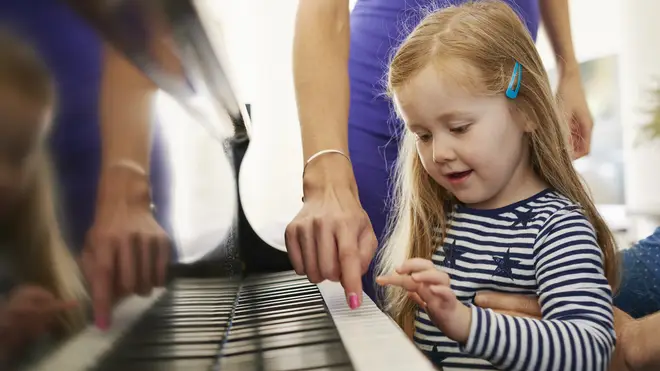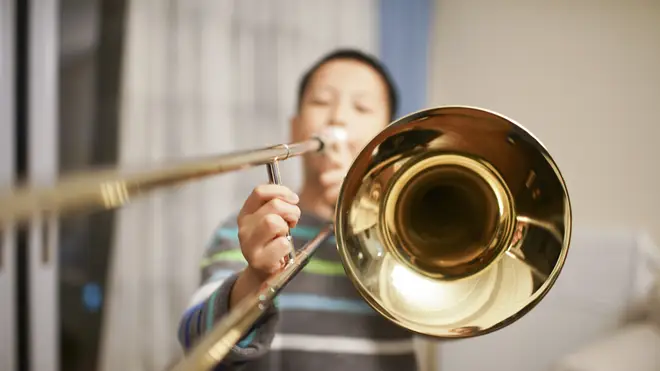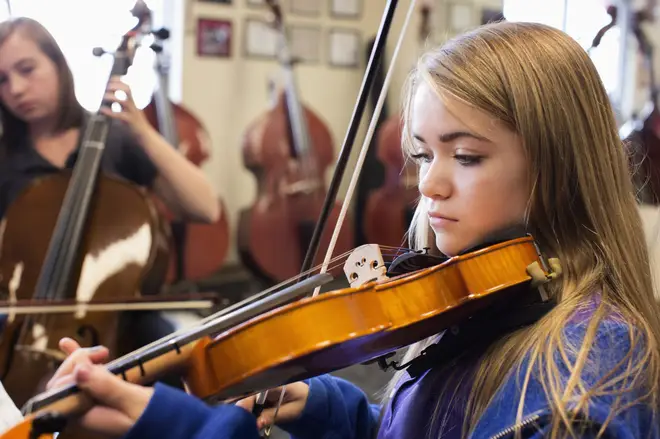Nine in ten children want to learn a musical instrument, survey finds
1 November 2018, 11:22

Research into children’s interest in learning a musical instrument finds that young children are keener than ever, but interest among older children is dwindling.
A new piece of research by the Royal Philharmonic Orchestra (RPO) reveals nine in ten children want to learn a musical instrument.
The survey, conducted by YouGov for the RPO, asked children aged six to 16 around the UK about their interest in learning an instrument.
Band instruments like the guitar (45 per cent), piano (36 per cent) and drums/percussion (35 per cent) proved the most popular. Meanwhile, 75 per cent of children opted for an orchestral instrument, such as the violin (10 per cent), flute (8 per cent) and saxophone (8 per cent).
At the other end of the scale, children were least interested in learning the French horn and double bass.

Of those surveyed, girls (95 per cent) were slightly keener to learn an instrument than boys (90 per cent). The instruments most popular with girls were the flute (13 per cent), recorder (13 per cent), violin (14 per cent) and viola (14 per cent).
Boys, on the other hand, were far more likely to want to learn the guitar (50 per cent), drums (45 per cent) and bass guitar (28 per cent).
The information follows a study revealing the gender imbalance in orchestral instrument sections, which found there were no women trombone or tuba players in the world’s top 20 orchestras. It also found the majority of double bass (95 per cent) and timpani players (96 per cent) were men.
Read more: School in North London celebrates winning Classical 100 Challenge >
The RPO’s survey also indicates that the older a child gets, the less interested they become in learning a musical instrument.
James Williams, managing director of the RPO, suggests more needs to be done to nurture children’s interest in music, saying: “The relative speed with which children’s interest in learning a musical instrument falls from 96 per cent to 84 per cent in just four years underlines the work that needs to be done to support young musicians and at a crucial age.”

Between the ages of ten and 14, the proportion of children who said they were no longer interested in learning a musical instrument quadrupled from 4 to 16 per cent. This age group were also more likely to say their school did not encourage them to develop an interest in music (rising from 28 per cent among 6-10 year olds, to 41 per cent of over 14 year olds).
This follows a study by the University of Sussex, which revealed that the number of schools offering music at A Level music has dropped by more than 15 per cent over the last two years.
“Wherever possible, music needs to stay on the school curriculum but, more fundamental than that, teenagers need reassurance that music matters,” says James Williams.
“Given the UK has some of the world’s most respected orchestras, we need to invest in tomorrow’s talent.”


































